The education landscape is growing at an unmatched speed, and AI in education is leading this transformation.
Gone are the days when learning was limited to textbooks and blackboards. Artificial Intelligence in education is reshaping how students learn, teachers instruct, and institutions operate.
From AI-driven education apps to AI chatbots for education, schools, universities, and EdTech companies are leveraging intelligent algorithms to personalize learning, streamline administrative tasks, and enhance accessibility.
AI technology in education is breaking barriers, enabling students to learn at their own pace and providing educators with insights that improve teaching strategies.
Did You Know? AI-powered virtual tutors are already helping students worldwide, making learning more interactive, engaging, and accessible!
From Chalkboards to AI: The Evolution of Learning
Education has come a long way from chalk-dusted blackboards and heavy textbooks to AI-driven education apps that personalize learning with just a few taps.
Remember the days of sitting through hours of monotonous lectures, flipping through endless pages, and waiting weeks for test results?
Those days are fading fast, thanks to Artificial Intelligence in education.
Today, AI is reshaping education, making learning more adaptive, engaging, and accessible than ever before. AI-powered tutors are available 24/7, grading is automated in seconds, and students get customized lessons based on their unique learning styles.
From answering small questions to understanding complex calculus, AI in educational apps has your back.
|
Feature |
Traditional Learning |
AI-Powered Learning |
|
Personalization |
One-size-fits-all approach |
AI adapts lessons based on student performance and learning speed |
|
Assessment |
Manual grading, prone to bias |
Instant, automated grading with detailed insights |
|
Accessibility |
Limited to classroom hours |
24/7 access to AI tutors and educational resources |
|
Engagement |
Static textbooks and lectures |
Interactive, gamified, and AR/VR-enhanced lessons |
|
Administration |
Piles of paperwork and inefficiency |
AI automates schedules, attendance, and reports in seconds |
AI-powered learning platforms don't just teach- they understand students, tracking their strengths, weaknesses, and study patterns to create customized study plans that actually help them retain knowledge!
The future of education isn't just digital- it's intelligent, intuitive, and AI-driven. Are you ready for the change?
Artificial Intelligence in Education: Market Stats
Explore the impact of AI in education with the latest market statistics. Here’s what the numbers reveal:
-
- Around 44% of children actively engage with generative AI, with 54% utilizing it for schoolwork and homework.
- 60% of teachers have incorporated AI-powered tools into their daily teaching methods.
- The most widely used AI tools in education by teachers are AI-powered educational games, adopted by 51% of educators.
- In primary education (K-12), 80% of teachers use virtual learning platforms like Google Classroom at least once a week.
- Nearly 39% of students explore generative AI out of curiosity, experimenting with its capabilities.
- Over 53% of higher education students leverage AI to generate content for assignments that contribute to their grades.
This truly shows that the use of AI in education is growing at a tremendous rate, and it is not going to slow down.
No wonder why businesses want to create an education app, and integrate with AI, making sure they stay ahead in innovation and market competition.
Key Use Cases of AI in Education
AI is rapidly transforming the education sector, making learning more personalized, efficient, and engaging.
From automated grading to AI-powered student performance analytics, the use of AI in education is revolutionizing classrooms and e-learning platforms.
Here's how AI use cases in education are reshaping the way students learn, teachers instruct, and institutions operate:
1. Personalized Learning
Every student is different and grasps concepts differently, while others need more time and a different approach.
The use of Artificial Intelligence in education enables personalized learning by analyzing a student's strengths, weaknesses, and pace. AI-powered platforms adjust difficulty levels, suggest extra materials, and even create customized study plans based on each learner's progress.
This is a massive upgrade from the traditional one-size-fits-all teaching method. Now, students get precisely what they need, without unnecessary repetition, and without getting lost in a lesson. AI-driven learning platforms ensure better engagement, faster comprehension, and higher retention rates.
Why It Matters: Personalized learning means students don't feel left behind or bored. AI ensures that every student reaches their full potential, regardless of learning speed.
This is why Forward-thinking schools & startups are teaming up with the right AI app development company to create intelliegnt learning platforms.
2. Automated Grading
Teachers are superheroes, but grading endless stacks of assignments? That's their kryptonite. AI-powered grading systems are changing that by evaluating quizzes, essays, and even long-form answers instantly.
These tools don't just mark answers right or wrong-they provide constructive feedback, helping students understand mistakes and improve faster.
For teachers, this means more time for lesson planning and student engagement instead of spending hours on grading. AI-powered grading is especially helpful for online education, where managing large numbers of students can be overwhelming.
Why It Matters: AI in grading means faster feedback for students and less burnout for teachers, which is a win-win for everyone.
3. Virtual Tutors & AI Chatbots
Sometimes even smart students can get into a tricky question, this is where AI-powered virtual tutors are the answer.
These chatbots and AI-driven assistants are available 24/7, offering step-by-step explanations, practice exercises, and even interactive discussions to help students grasp concepts.
Unlike traditional tutors, AI doesn't get tired or impatient. These systems analyze how students interact with questions and provide personalized guidance.
Many AI-driven learning apps integrate voice recognition, allowing students to simply ask questions and get answers on the spot.
Having such a modern education app feature powered by AI is redefining engagement.
Why It Matters: AI tutors bridge the gap between school hours and real-time learning needs, ensuring students get help whenever they need it.
4. AI-Powered Student Performance Analytics
Imagine if schools could predict which students are at risk of failing before it actually happens. AI-powered student performance analytics can do just that.
These tools track everything from test scores and engagement levels to study habits and attendance, identifying patterns that indicate potential struggles.
Teachers and parents can then intervene early, providing extra support, resources, or tutoring before a student falls too far behind.
This predictive technology is revolutionizing student success strategies, ensuring fewer students slip through the cracks.
Why It Matters: With AI, no student gets left behind- early detection means timely intervention and better outcomes.
If you're looking to create an AI app that truly makes a difference in education, this use case proves just how impactful smart data-driven features can be.
5. Smart Content Creation
Creating lesson plans, quizzes, and study guides takes hours of effort for educators.
Generative AI in education is changing the game by generating custom educational materials in seconds.
AI-powered platforms can create interactive quizzes, flashcards, and even full lesson modules, tailored to the curriculum and student needs.
This technology helps teachers save time and focus on student interaction, while also offering students more engaging, customized learning experiences.
Some AI tools can even convert textbooks into interactive formats, making learning more dynamic.
Why It Matters: AI frees up teachers to focus on teaching, while students get better, more engaging learning materials.
6. Speech Recognition for Disabled Students
The use of AI in education is making learning more inclusive than ever before.
Speech-to-text technology enables students with disabilities to take notes, answer questions, and participate in discussions with ease.
AI-powered voice recognition can also translate sign language into text, helping hearing-impaired students stay engaged in class.
Additionally, AI-driven text-to-speech tools assist visually impaired learners by reading out digital textbooks, articles, and assignments. These technologies remove barriers, making education accessible to everyone, regardless of physical challenges.
Why It Matters: AI ensures that learning is truly inclusive, allowing students with disabilities to learn, communicate, and succeed.
7. AI in Online Education
Online education is convenient, but let’s be honest it can also be boring. AI is changing that by adding interactive learning experiences, real-time feedback, and adaptive lesson plans.
AI-powered e-learning platforms can adjust course difficulty, suggest additional materials, and even gamify learning, making it more engaging.
For example, AI in language learning apps can analyze pronunciation and fluency, providing instant feedback. AI in math apps can break down complex problems step by step. This makes remote learning feel more personal and interactive.
Why It Matters: AI ensures that online education isn’t just watching videos-it’s interactive, adaptive, and truly engaging.
8. Plagiarism Detection & Writing Assistance
Let’s face it-students sometimes copy-paste to get assignments done. AI-powered plagiarism detection tools now scan entire documents, comparing them against billions of online sources to ensure originality.
At the same time, AI-powered writing assistants help students improve grammar, clarity, and structure, making them better writers. Instead of just catching mistakes, AI teaches students how to improve their writing skills.
Why It Matters: AI promotes academic integrity while helping students become more confident writers.
9. AI-Powered Proctoring for Exams
With more online exams, cheating has become easier than ever-but so has stopped it. AI-powered proctoring systems monitor students through webcams, analyze eye movements, typing patterns, and background noise, and flag suspicious behavior.
Some AI proctoring tools can even identify impersonation attempts, ensuring that only the right student takes the test. These tools are making online exams as secure as in-person assessments.
Why It Matters: AI maintains exam integrity, ensuring fair testing for all students.
10. Gamified Learning & AI-Powered Simulations
AI-driven educational games and simulations make learning fun. Instead of reading about ancient Egypt, imagine walking through a VR simulation of the pyramids.
Gamified learning boosts engagement, motivation, and retention, transforming boring subjects into exciting experiences.
Why It Matters: When learning feels like a game, students stay engaged and absorb knowledge more effectively.
Why AI is a Game-Changer for EdTech Companies?
The rapid adoption of AI in educational apps is transforming the business landscape for EdTech companies.
No longer is education bound by rigid structures - AI in education applications allows for dynamic, personalized, and data-driven learning experiences.
The benefits of education apps with AI include scalability, cost savings, and data-driven insights for institutions.
Here are some other key benefits AI offers to Edtech Companies:
1] Personalized Learning Experiences
Every learner absorbs information in their own unique way and excels through visuals, others through practice, and some need extra guidance.
AI in educational practices analyzes individual learning patterns and tailors content accordingly.
AI-driven platforms ensure that students receive material suited to their pace and preferences, improving engagement and knowledge retention.
How It Benefits: Students no longer feel pressured to keep up with a rigid curriculum. AI in educational apps creates a stress-free, customized learning journey that increases knowledge retention and engagement.
2] Automated Content Creation
Imagine being able to generate quizzes, study guides, and even whole lessons in seconds. With AI and generative AI in education, this is now a reality.
AI-powered tools analyze curriculum data and generate interactive learning materials, saving teachers and content creators hours of manual work.
How It Benefits: EdTech companies can scale their learning platforms faster, ensuring fresh and updated content without requiring extensive manual work. This also allows educators to focus on mentorship and student engagement.
3] Data-Driven Decision Making
AI in the education sector doesn’t just enhance learning- it provides powerful analytics.
AI-driven systems track student performance, detect learning gaps, and offer insights that help educators refine their teaching strategies.
EdTech companies use this data to improve their apps, ensuring better outcomes for students.
How It Benefits: By understanding how students learn, EdTech companies can optimize their courses, personalize learning recommendations, and improve student outcomes.
AI in the education industry ensures smarter decision-making backed by real-time analytics.
4] Scalability Without Limits
AI-powered education platforms can handle thousands (or even millions) of learners without requiring a proportional increase in human resources.
Pairing this scalability with flexible education app monetization models (e.g., freemium or B2B licensing) ensures sustainable growth for EdTech companies.
How It Benefits: EdTech businesses can expand globally without worrying about infrastructure limitations. AI in educational apps enables seamless growth, allowing institutions to provide quality education at scale.
5] Enhanced Accessibility for All Learners
Learning should be for everyone, and AI in education applications is making it possible. AI-powered tools offer speech-to-text, real-time language translation, and assistive technologies for students with disabilities.
Whether a student has visual impairments or struggles with language barriers, AI-driven solutions break down obstacles.
How It Benefits: Learning is no longer limited by location or ability. AI technology in education ensures inclusivity, helping EdTech companies reach diverse learners worldwide.
6] Operational Efficiency & Cost Savings
From student enrollment to grading exams, AI can automate tedious administrative processes, reducing operational costs.
The impact of AI in education includes streamlined workflows, faster decision-making, and improved efficiency for both educators and institutions.
How It Benefits: Institutions can reduce operational costs and improve service quality. Artificial Intelligence in education applications makes learning institutions more efficient, allowing them to allocate more time to improving teaching strategies.
7] AI Chatbots for Education: 24/7 Learning Assistance
Having an AI-powered assistant available 24/7 to answer student questions, guide them through lessons, and even offer feedback on assignments is what is the need of the hour.
AI chatbots for education provide instant, on-demand support-eliminating long wait times for help.
How It Benefits: Students receive instant support without waiting for a human response, improving engagement and reducing frustration. Successful AI integration in educational apps enhances student satisfaction and learning outcomes.
Popular Applications Using AI in Education
AI is no longer a futuristic dream-it's already transforming classrooms and online learning.
From personalized tutoring to automated assessments, AI is reshaping how students learn and teachers instruct.
AI is transforming how students learn by making lessons more interactive, personalized, and effective.
Successful AI integrations start with intuitive education app design, ensuring seamless user experience for students and teachers- whether it’s mastering a new language, solving complex math problems, or preparing for exams.
Here are some real-world apps that prove AI is the future of learning.
1. Google's Read Along
A reading coach who's always available, guiding kids through stories, correcting pronunciation, and making learning fun.
Read Along listens to children as they read aloud and offers real-time feedback, helping them improve their pronunciation and fluency.
The AI-driven assistant, Diya, makes reading fun by providing encouragement and tracking progress.
AI in Action: Uses speech recognition to detect reading errors and guide kids in real time.
2. Duolingo
Ever tried learning a new language but got stuck? Duolingo's AI adapts lessons based on your strengths and weaknesses, making language learning feel less like studying and more like playing a game.
From beginner to expert, the app keeps you engaged with AI-powered exercises and personalized feedback. The popularity is inspirational for investors, too. This is why they want to develop an app like Duolingo.
AI in Action: In language learning apps similar to Duolingo, AI tracks progress and customizes lessons based on mistakes and improvement areas.
3. Squirrel AI
Imagine a tutor who understands exactly where you're struggling and adjusts lessons to help you improve.
Squirrel AI does just that, delivering personalized learning experiences in China’s education system.
It breaks down complex topics and ensures students master them before moving forward.
AI in Action: Uses AI algorithms to detect weak areas and recommend targeted learning strategies.
4. Carnegie Learning’s MATHia
Math is tough, but students have a personal AI tutor. MATHia acts like an interactive coach, guiding students through difficult math problems step by step.
It doesn’t just give answers- it teaches problem-solving strategies so students actually understand the concepts.
AI in Action: Provides step-by-step explanations and adapts to individual learning speeds.
5. Querium
SAT, ACT, or GRE prep? Querium uses AI-powered tutoring to get students exam-ready.
It breaks down test questions into manageable steps, ensuring learners understand how to solve them efficiently.
The AI tutor also tracks progress, offering targeted feedback to maximize improvement.
AI in Action: Simulates actual test conditions and provides personalized coaching based on student performance.
Integrating AI in Education: Best Practices for Implementation
AI is changing the way students learn, teachers instruct, and institutions operate.
But simply adding AI tools isn’t enough - it requires a well-thought-out plan. AI integration in education should be seamless, effective, and aligned with learning goals.
From automating administrative tasks to enhancing personalized learning, the key is to implement AI in a way that truly benefits students and educators.
Here are some best practices to ensure AI implementation in education delivers meaningful results:
A] Start with a Clear Objective
Before adopting Artificial Intelligence, institutions must define what they want to achieve.
Be it automating grading, improving engagement, or offering personalized learning, setting clear goals ensures that AI is used effectively.
A well-defined strategy leads to successful AI integration in educational apps and maximizes the value of the technology.
B] Choose AI Tools That Complement Existing Systems
Not all AI-powered solutions fit every institution.
Schools and universities should select AI tools that integrate smoothly with their existing learning management systems (LMS).
A mismatch between technology and current practices can lead to disruptions instead of improvements.
Strategic selection ensures that the impacts of AI in education are positive and practical.
C] Train Educators to Use AI Effectively
Teachers are at the heart of education, and AI should empower them, not replace them.
Institutions must provide proper training so educators can utilize AI-driven insights, adapt their teaching methods, and make the most of AI in the education industry.
When teachers feel confident using AI, they can guide students better and enhance learning outcomes.
D] Ensure Ethical and Responsible AI Usage
AI must be implemented with fairness and privacy in mind.
Institutions should establish ethical guidelines to prevent data misuse, bias, or student privacy violations.
When ethical AI practices are followed, students and teachers can trust the system, ensuring AI integration in education is both effective and secure.
E] Use AI for Personalized Learning Experiences
One of the biggest benefits of generative AI in education is its ability to customize learning for each student.
AI-driven platforms analyze student progress and provide tailored lessons, helping struggling learners while challenging advanced students.
This ensures that no student is left behind.
F] Automate Repetitive Administrative Tasks
AI can save educators countless hours by handling tasks like grading, attendance tracking, and scheduling.
This allows teachers to focus more on teaching and mentoring, improving the overall learning experience.
AI implementation in education should prioritize automation where it enhances efficiency without compromising quality.
G] Pilot AI Solutions Before Full Deployment
Jumping into AI without testing it first can lead to unnecessary challenges. Institutions should run small-scale pilot programs before full adoption.
Testing AI-powered tools with a limited number of students and teachers allows adjustments to be made before a wider rollout, ensuring Artificial Intelligence in educational practices is optimized for success.
H] Encourage Student Interaction with AI Tools
AI isn't just for educators- students should actively engage with it too.
Encouraging students to use AI-powered tutors, chatbots, and study assistants can improve self-learning skills and engagement.
Proper guidance ensures that AI in education applications enhances student experiences rather than replacing traditional learning.
Challenges in AI Adoption in Education & How to Overcome Them
AI and education are a powerful duo, transforming learning through Artificial Intelligence applications in education, from personalized tutoring to automated assessments.
However, integrating AI into classrooms isn’t without challenges. Issues like data privacy, high costs, and educator resistance can slow adoption.
Let’s explore the biggest challenges in implementing Artificial Intelligence in education applications and how to overcome them for a smarter, more efficient learning experience!
1. Data Privacy & Security Concerns
With AI applications in education collecting vast amounts of student data, privacy and app security concerns are major roadblocks.
Schools and universities handle sensitive information, and any breach can have severe consequences.
Without strong safeguards, AI-powered learning platforms can become vulnerable to cyber threats, data leaks, and misuse.
Solution:
-
- Implement end-to-end encryption to protect sensitive student data.
- Ensure AI chatbots for education comply with regulations like GDPR or FERPA.
2. High Development Costs
AI in education applications requires significant investment, from hiring skilled developers to maintaining powerful AI models.
Many institutions, especially smaller ones, struggle with limited budgets.
The cost to develop an education app with AI-driven tools like generative AI in education or adaptive learning platforms can be overwhelming without proper financial planning.
Schools and universities must explore cost-effective solutions to integrate AI without straining their resources.
Solution:
-
- Leverage cloud-based AI solutions to reduce infrastructure costs.
- Use pre-trained AI models instead of building from scratch to save development time.
- Opt for AI-as-a-Service (AIaaS) solutions that offer affordable subscription-based models.
3. Resistance to Change Among Educators
Many educators fear that artificial intelligence in education might replace their roles rather than enhance them.
The lack of AI literacy and skepticism about AI algorithms' reliability leads to resistance.
Teachers need reassurance that AI is here to support them by automating repetitive tasks and personalizing student learning experiences.
Solution:
-
- Conduct AI training workshops for educators to familiarize them with AI-powered tools.
- Showcase real-life success stories of AI enhancing, not replacing, teaching roles.
- Encourage a blended learning approach where AI complements human instruction.
4. Bias in AI Algorithms
AI algorithms in education can unintentionally reinforce biases if trained on unbalanced datasets.
This can lead to unfair grading, skewed recommendations, or limited access to personalized learning.
A biased AI application in education can create educational inequalities rather than solve them.
Solution:
-
- Ensure diverse and inclusive training data for AI models to minimize bias.
- Conduct regular audits of AI systems to identify and correct biases.
- Implement transparent AI decision-making processes with human oversight.
5. Limited Personalization for Students
AI-powered learning should adapt to different learning styles, but many AI education applications still offer generic solutions.
A one-size-fits-all approach fails to cater to students with unique learning needs, disabilities, or varying comprehension levels. AI must evolve to offer truly personalized education.
Solution:
-
- Use AI algorithms that analyze student performance and suggest tailored learning paths.
- Implement generative AI in education to create custom lesson plans and study materials.
- Integrate AI-powered speech recognition tools for students with disabilities.
6. Lack of Skilled AI Professionals in Education
Successful AI implementation requires skilled professionals, but there’s a shortage of AI experts in the education sector.
Many institutions lack the technical knowledge needed to integrate AI-powered tools, resulting in inefficient adoption.
Without proper expertise, AI projects often fail to deliver their full potential.
Solution:
-
- Invest in AI training programs for educators and IT staff to boost technical expertise.
- Partner with AI research institutions to access cutting-edge AI advancements.
- Introduce AI-focused courses to train the next generation of AI-savvy educators.
With challenges out of the way, we are going to talk about the future trends shaping the learning in the classroom.
Future Trends Shaping AI in Education
Artificial Intelligence (AI) is transforming the education industry, reshaping how students learn and how educators teach. From personalized learning experiences to AI-powered tutors, the future of AI in education applications looks promising.
Educational institutions and e-learning platforms are rapidly adopting AI to improve efficiency, engagement, and accessibility. While the cons and pros of AI in education continue to be debated, one thing is clear-AI is here to stay.
Let’s explore the future trends shaping AI in the education industry and how they will impact online learning.
► AI-Powered Personalized Learning
To cater to different unique learning styles, AI is making it easier to cater to individual needs. AI algorithms can assess a student’s strengths and weaknesses, adjusting content accordingly.
For example, platforms like Khan Academy and Coursera use AI in education applications to recommend personalized lessons, ensuring students receive the right material at the right time.
This level of customization makes learning more efficient, allowing students to progress at their own pace without feeling overwhelmed.
► Virtual Tutors & AI Chatbots for Education
The demand for AI chatbots for education is increasing as institutions seek to provide instant academic support.
These AI-powered tutors assist students in real-time, answering questions and offering explanations without human intervention.
For example, Duolingo uses an AI-driven chatbot to simulate real conversations, helping language learners practice effectively.
Similarly, universities are integrating AI education software development to automate student inquiries, reducing administrative workload.
► Generative AI in Education for Content Creation
The rise of generative AI in education is revolutionizing how course materials are created. AI can generate quizzes, assignments, and even entire lesson plans, saving time for educators.
Tools like ChatGPT and DeepSeek are being used to summarize textbooks, generate explanations, and create interactive educational content. This technology not only enhances productivity but also makes learning materials more engaging for students.
► AI for Automated Grading & Feedback
Manual grading is time-consuming, but Artificial Intelligence in education applications is making the process faster and more accurate. AI-powered tools can assess multiple-choice tests, essays, and coding assignments with high efficiency.
For example, Turnitin’s AI grading system evaluates students’ writing and provides instant feedback, allowing them to improve their work before submission. Automated grading helps educators focus on personalized teaching rather than administrative tasks.
► AI for Detecting Learning Difficulties Early
AI is making classrooms more inclusive by identifying students who may be struggling. By analyzing performance patterns, AI algorithms can detect learning disabilities or gaps in understanding.
For instance, Carnegie Learning uses AI-driven assessments to pinpoint struggling students and recommend personalized interventions. This ensures that no student is left behind and receives the support they need.
► AI and Education Gamification
Gamification has already proven effective in boosting student engagement, and AI is making it even better.
AI-driven gamification tailors challenges and rewards based on a student’s learning progress.
Educational platforms like Prodigy and Kahoot! Use AI in the education industry trends to create interactive learning experiences. AI adapts difficulty levels dynamically, ensuring students remain challenged but not frustrated.
Emerging trends like gamified classrooms and VR tutors are among the best education app ideas for startups to explore
► AI-Powered Smart Classrooms
The concept of AI in the education industry goes beyond digital learning platforms. AI-powered smart classrooms use facial recognition and engagement tracking to help teachers understand student participation levels.
AI cameras and analytics tools can detect whether students are paying attention, allowing educators to adjust their teaching strategies. This makes traditional classrooms more interactive and data-driven.
► Blockchain & AI for Secure Academic Credentials
As online education grows, credential verification is becoming a critical concern. AI and blockchain are being combined to create secure, tamper-proof academic certificates.
For example, IBM’s Blockchain for Education helps universities store student credentials securely, ensuring degrees and certifications are authentic and easily verifiable.
► AI for Career Guidance & Skill Matching
Choosing the right career path can be challenging, but AI-powered career guidance systems are making it easier. These tools analyze a student’s skills, interests, and academic performance to suggest career options.
Platforms like LinkedIn Learning use AI to recommend courses that align with a person’s career goals. By leveraging AI-driven insights, students can make informed decisions about their professional future.
Partnering with JPLoft for AI-Powered Education Solutions
From AI-powered personalized learning experiences to automated grading systems, artificial intelligence is making education more interactive, accessible, and efficient.
However, implementing AI-driven solutions requires expertise, cutting-edge technology, and the right development partner.
That’s where JPLoft comes in! As a top education app development company, we specialize in developing innovative AI-powered education solutions that help e-learning platforms, schools, and universities enhance learning experiences.
With years of experience in AI-driven software development, mobile apps, and even serving as a technology partner, we create smart education platforms tailored to the future of learning.
Final Words
AI is revolutionizing the education sector by making learning more personalized, accessible, and efficient.
From AI-driven adaptive learning systems to virtual tutors, technology is reshaping how students engage with educational content.
AI chatbots provide instant academic support, while automated grading tools save educators valuable time.
Moreover, conversational and generative AI in education is transforming content creation, allowing institutions to develop interactive and engaging study materials. With predictive analytics, AI helps identify learning gaps and improve student performance.
JPLoft specializes in developing AI-powered education solutions tailored to modern learning needs. Partner with us to create smart, scalable, and innovative e-learning platforms that redefine the future of education!
FAQs
AI enhances education through personalized learning, AI chatbots, automated grading, and virtual tutors. It also helps teachers analyze student performance, improve engagement, and streamline administrative tasks for a more efficient learning experience.
AI in education will advance with adaptive learning, AI-driven assessments, and immersive AI-powered virtual classrooms, making education more accessible, personalized, and data-driven. Generative AI will also revolutionize content creation and curriculum design.
Pros: Personalized learning, automated grading, 24/7 AI tutors, and enhanced engagement. Cons: High implementation costs, data privacy concerns, reduced human interaction, and potential over-reliance on AI-driven decision-making.
AI is crucial in modern education, enabling smarter learning tools, efficient teaching methods, and scalable digital education solutions. It helps institutions enhance student outcomes, automate repetitive tasks, and optimize the overall learning experience.
AI-powered tools like speech-to-text, real-time translations, and personalized learning aids make education more inclusive for students with disabilities and non-native speakers, ensuring equal learning opportunities for all.





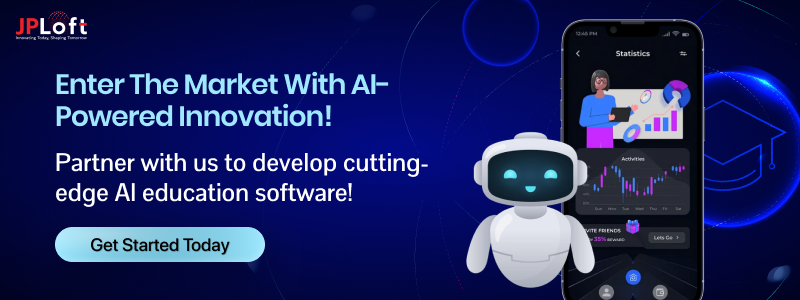
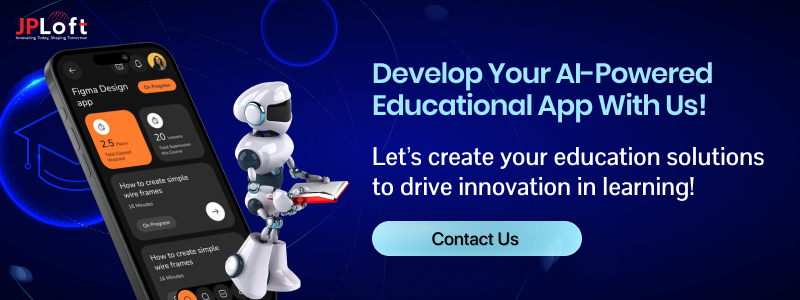

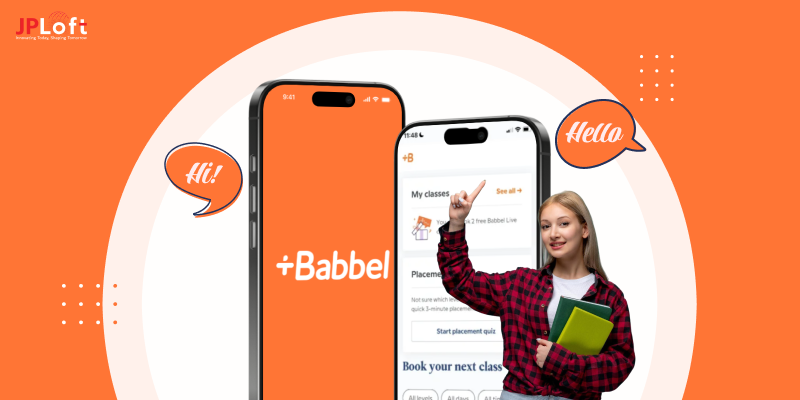
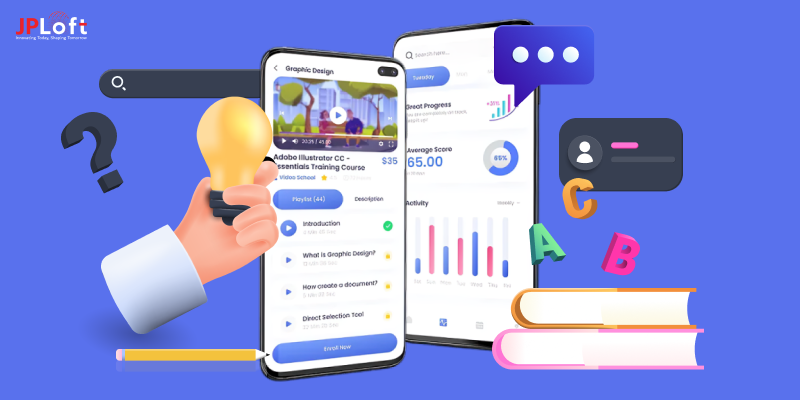
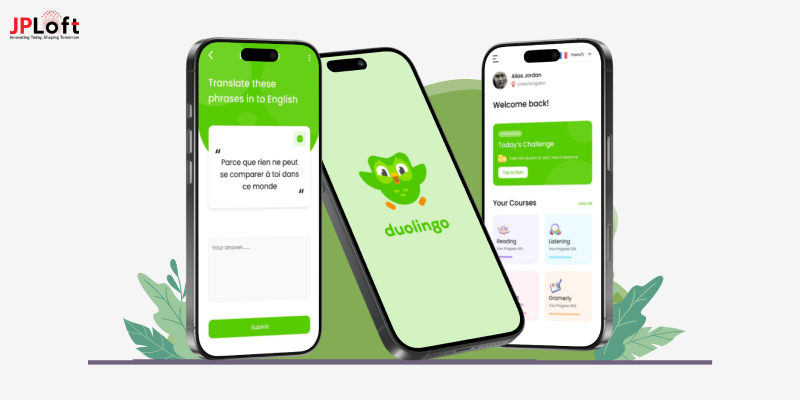



Share this blog